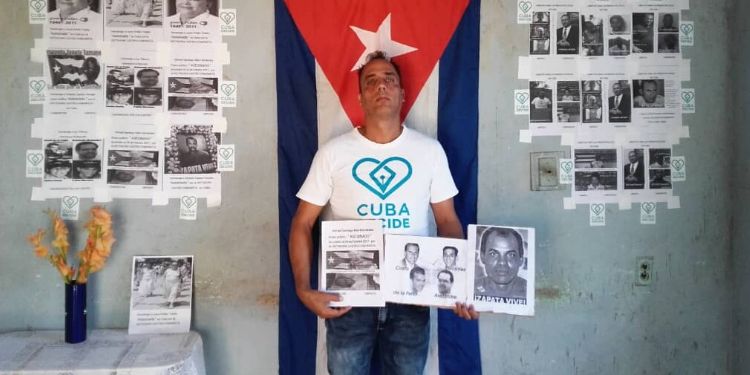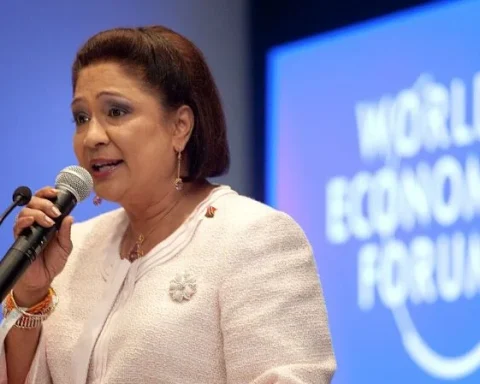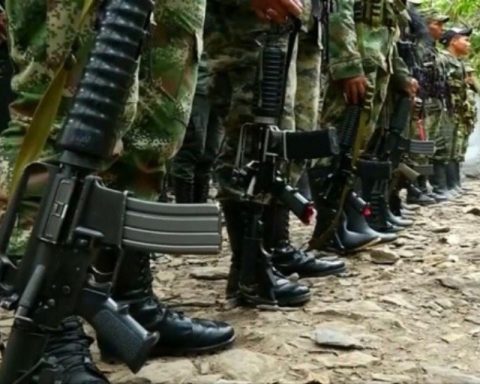Due to these criteria, Morena’s candidates for elected positions could eventually find themselves disqualified by not meeting the requirements to register as champions for an elected position.
That is in the case of new behaviors and complaints, since the accusations that morenista candidates face today for alleged constitutional violations and that are pending resolution, would have been committed during the mandate revocation process (March and April).
And in those cases, the new criterion of the Superior Chamber of the TEPJF would not apply, as has been resolved by the Specialized Regional Chamber (SRE) of the Court, which hears these cases in the first instance.
discarded
A minister of the Supreme Court of Justice of the Nation (SCJN) dismissed as inadmissible the actions of unconstitutionality promoted by the leaders of Morena and the Labor Party (PT), through which they tried to avoid the ineligibility of the so-called “corcholatas” course to 2024.
“The actions of unconstitutionality promoted by Mario Martín Delgado Carrillo, who holds the position of President of the National Executive Committee of Morena and by the members of the National Coordinating Commission of the Labor Party, are dismissed out of hand, as they are notoriously inadmissible.” , highlights the resolution.
And it is that Morena and PT intended to overthrow a criterion of the Electoral Court of the Judicial Power of the Federation (TEPJF) that establishes the loss of the “honest way of life” of those officials who violated the Constitution and electoral laws.
Both parties can still promote a review resource so that, in any case, another minister enters or not to that challenge.
These are the actions of unconstitutionality 102/2022 and its accumulated 103/2022, promoted by Morena and the PT, respectively.
What did the TEPJF approve that caused an alert in Morena?
On June 8, the Superior Chamber of the TEPJF resolved a set of resources related to a display and a hundred Twitter messages issued by 17 governors emanating from Morena, among them Claudia Sheinbaum Pardo.
By a majority of 4 of 7 magistrates, the Chamber determined that these officials incurred in the dissemination of government propaganda in a prohibited period, since they were published in March, during the revocation process; committed personalized promotion and violated the principle of neutrality.
In his sentence, he reasoned that a person is expected to have an honest way of living while respecting the Constitution and the laws to maintain the Rule of Law “so that any infraction of the constitutional norms, with an impact on electoral matters, is sufficient cause to consider the loss of the honest way of living.”
For this reason, he linked the federal and local electoral courts, so that “in the future, when resolving sanctioning procedures, they analyze the possible suspension of the eligibility requirement, consisting of the presumption of having an honest way of living by public servants, of whom responsibility for violations of the Constitution is proven.
That is, if they violate the Constitution, it could be considered that they do not have an honest way of living -which is one of the requirements to access elected positions-, and therefore they would be prevented from running for those positions.
Since the TEPJF does not have the power to sanction local executives, it reviewed the Congresses of the entities involved: Mexico City, Tabasco, Colima, Veracruz, Guerrero, Morelos, Nayarit, Baja California, Baja California Sur, San Luis Potosí , Puebla, Michoacán, Campeche, Sinaloa, Sonora, Chiapas and Tlaxcala, whose local executives violated the Constitution.
What did Morena contest?
According to the unconstitutionality action filed by Mario Delgado Carrillo, from Morena, and the Labor Party, the TEPJF criteria are in fact a law, since they meet the requirements of one, such as generality, permanence and abstraction. , “because with its emission it creates and regulates legal situations”.
But the Superior Chamber of the TEPJF “lacks the constitutional competence to subsist these criteria with a status equivalent to law,” even though in its ruling it established that these would be in force until legislation is passed in this regard.
It also argued that the TEPJF does not have the power “to declare when the legislation issued on this subject will be valid or not, with general effects, since such matter is the power of that Plenary Court of the Supreme Court of Justice of the Nation when deciding some action of unconstitutionality”.
-With information from Guadalupe Vallejo.
















